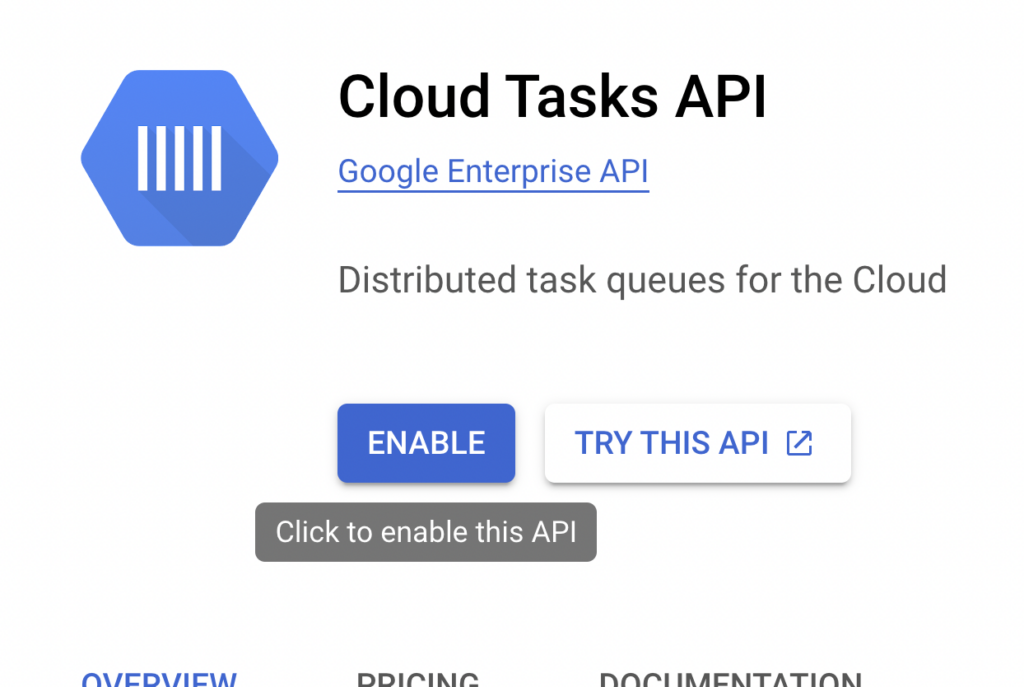Working with Google Cloud Tasks and Symfony
An important software development best practice is that long-running tasks need to be offloaded from the main thread. This ensures the user experience will not be slowed down, even for a few seconds, when the backend is performing a long-running task.
A solution is to use tasks. Tasks are a simple, efficient method. My walkthrough will use Google Cloud Tasks, the package "google/cloud-tasks" and the Symfony framework (specifically 5.4).
Design
From a service within an app, I create a Task that calls an endpoint to perform the long-running task (off the main thread).
A lesson learned is I now put my TaskService in the main app and it writes a task to Google Cloud. In a non-development deployment, Google Cloud Tasks would then call an HTTP endpoint of my choosing.
During early development, it was easier to create local endpoints and simulate a call via Postman. (For example main Symfony app was http://localhost:8000/ and my endpoint was http://localhost:8000/.internal/endpoint.
Implementation - Google Cloud
First, make sure to enable Cloud Tasks API.

Second, to authenticate from the client side a private key is required. Pull this down also from Google Cloud through IAM & Admin > Service Accounts. (If you do not see any Service Accounts, go to Compute Engine API to ensure it's enabled.). Download the JSON file and move to the Symfony project.
Implementation - Symfony
Save the private key somewhere accessible to the Symfony project. Load up the required package from Google using composer.
google/cloud-tasks Package
composer require google/cloud-tasksTaskService
I often abstract my service classes from underlying service classes called framework-specific functions. This allows me to interface with a "Create Task()" function and not care about what is going on under the hood. In the future, if I change to another Cloud Task provider, the change is unknown and doesn't affect the rest of the stack.
public function createTask(
string $queue,
array $payload,
string $endpoint,
): Task
{
return $this->googleCloudTaskService
->createTask($queue, $payload, $endpoint);
}GoogleCloudTaskService
Above TaskService calls the below functions with a class I call "GoogleCloudTaskService".
public function createClient(): CloudTasksClient
{
return new CloudTasksClient([
'credentials' => json_decode(
file_get_contents(
$_ENV['PROJECT_ROOT_PATH'] . $_ENV['TASK_KEYFILE']
),
true
)
]);
} public function createQueue(string $queueName): void
{
$client = $this->createClient();
$project = $_ENV['TASK_PROJECT'];
$location = $_ENV['TASK_LOCATION'];
$locationName = $client::locationName($project, $location);
$queue = new Queue([
'name' => $queueName
]);
$queue->setName($queueName);
$client->createQueue($locationName, $queue);
} public function createTask(
string $queueName,
array $payload,
string $endpoint
): Task
{
try {
$client = $this->createClient();
$project = $_ENV['TASK_PROJECT'];
$location = $_ENV['TASK_LOCATION'];
$queue = $client::queueName($project, $location, $queueName);
//
$httpRequest = new HttpRequest();
$httpRequest->setUrl($endpoint);
$httpRequest->setHeaders(['Content-type'=>'application/json']);
$httpRequest->setHttpMethod(HttpMethod::POST);
//
$httpRequest->setBody(json_encode($payload));
$task = new Task();
$task->setHttpRequest($httpRequest);
return $client->createTask($queue, $task);
} catch (ValidationException $e) {
throw new Exception($e->getMessage(), 500);
}
}Creating Task
From a function that will call a long-running process, I call the TaskService or BusinessObject->createTask() and, within it, put the logic as such. Three key elements - queue, payload (in JSON), and HTTP endpoint for the task to call.
$queue = 'name-of-queue';
$payload = 'something';
$endpoint = "https://host/action";
$result = $this->taskService->createTask(
$queue,
$payload,
$endpoint
);Receiving Task / Executing Task
In most cases, this isn't anything other than a standard HTTP endpoint. Google Cloud Tasks does offer calls to different endpoints, such as App Engine. But to keep things simple, HTTP endpoints and JSON work best.
RELATED POST TO READ
Connect to Google Cloud SQL with Cloud SQL Auth proxy and UNIX Sockets
Google Cloud SQL provides multiple ways for a developer to connect to a database externally for development or testing purposes.
RELATED POST TO READ
How to Deploy WordPress with SSL on Google Cloud for Free
In a few hours, anyone, even those not well-versed in cloud computing or shell scripting, can deploy WordPress running SSL for free in Google Cloud.
RELATED POST TO READ
How To Redirect to HTTPS for WordPress with NGINX and SSL Certified by Bitnami and Automattic
How to redirect HTTP (unsecured) traffic to HTTPS when using NGINX.
